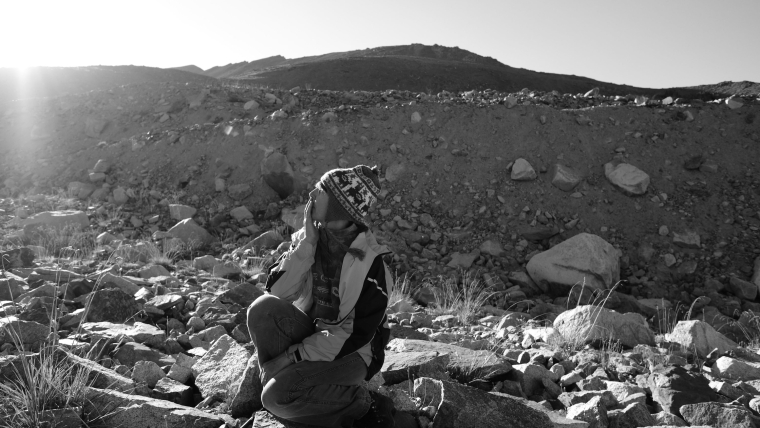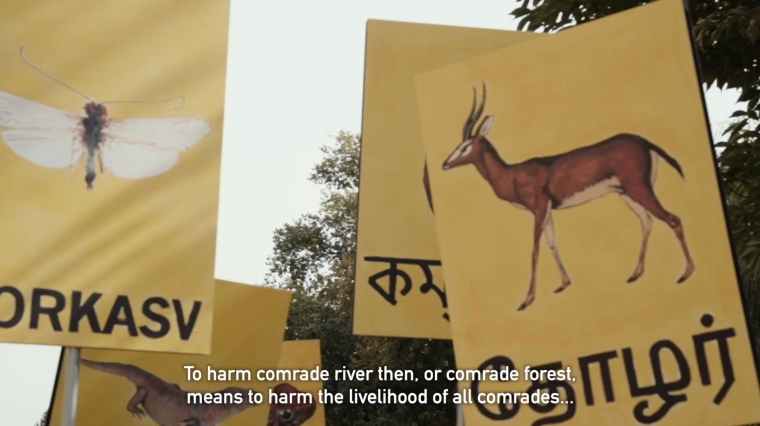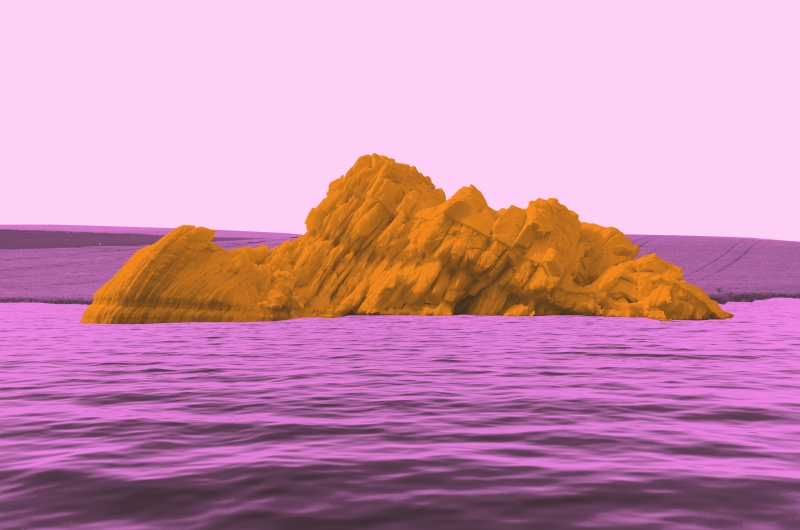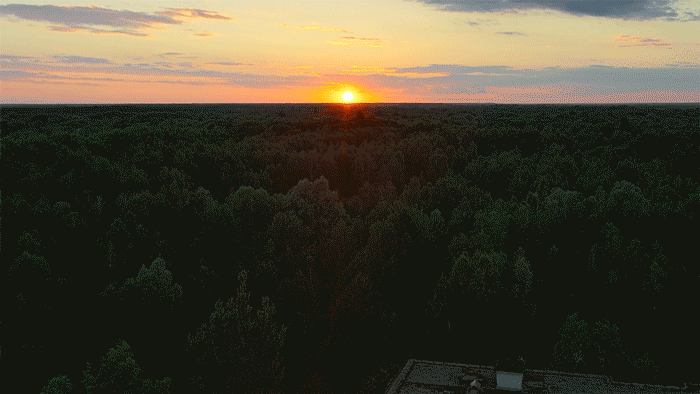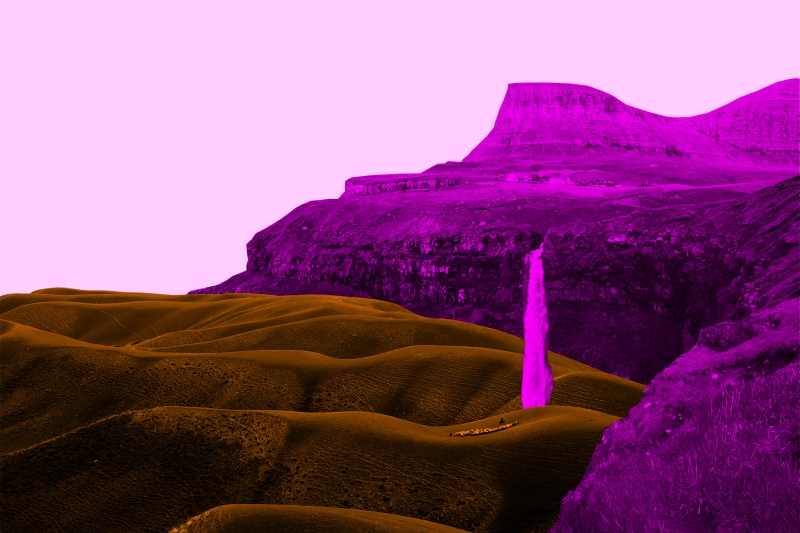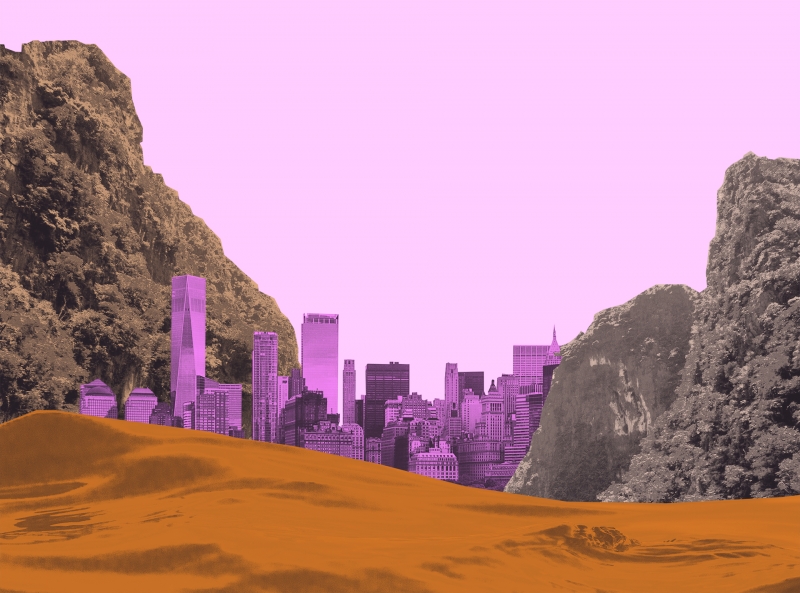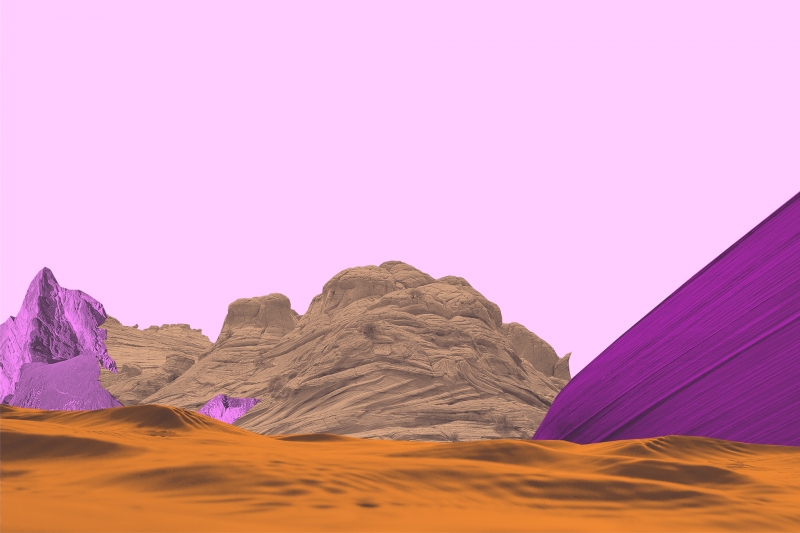Listening to Ice
with Mohd Farooq Azam and Faiza Ahmad Khan
For this new addition to the Climate Emergency > Emergence programme, maat Climate Collective is joined by glaciologist Mohd Farooq Azam and artist-activist Faiza Ahmad Khan. Together with Susan Schuppli, they engaged in a number of site-based activities at Drang-Drung Glacier in the Zanskar region of the Himalayas in September to October 2021. Their broad aim was to combine scientific and artistic approaches to climate change by developing acoustic and aural methodologies in cryospheric research. Through the deployment of various situated “listening” practices, their project brought together technical research, local experiences, and inter-generational knowledge of glaciers. Scientific activities included the deployment of an underwater sensor at the glacial lake, setting up a GPS and meteorological weather station, as well as installing a series of bamboo stakes along a 15-km stretch into the ablation area of the glacier to measure annual changes in its mass balance. Workshops brought local villagers to the glacier for sessions in “deep listening”. Lowering various hydrophones into its icy crevices allowed us to tune into its sub-glacial streams, to hear the rushing of meltwater, and the underwater crackling of ice and popping air bubbles. For some, the glacier conjured the domesticated sound of boiling tea; for others, the whir of a passing helicopter. The Climate Collective speaks with the initiators of the project to explore questions of the intersections of scientific research and artistic practice as part of an expanded approach to climate science for and with affected communities.
— Climate Collective: T. J. Demos, Molemo Moiloa, Susan Schuppli and Paulo Tavares
Science could perhaps be understood or positioned as producing the conditions of hospitality whereby non-experts and locals might be invited to the process to get a sense of what’s at stake in scientific work. I say this in recognition of the fact that knowledge sharing between communities of concern, whether they’re scientific or social, is still quite limited in its scope.
Susan Schuppli
|
The Climate Emergency > Emergence public programme initiative energises critical analyses and creative proposals in moving beyond catastrophism and toward the emergence of environmentally sustainable futures. Interdisciplinary in breadth and international in scope, the programme is conceptualised by the newly-formed 2021 Climate Collective: T. J. Demos (USA), chair and chief-curator, Molemo Moiloa (South Africa), Susan Schuppli (UK), Paulo Tavares (Brazil), geared toward assembling diverse cultural practitioners working at the intersection of experimental arts and political ecology.
As part of the programme taking place from April until December 2021, the Climate Collective has curated an online video screening series featuring films by a variety of international and local practitioners around themes addressed in the ongoing events. |
maat Explorations is a programme framework featuring an ongoing series of exhibitions, public and educational projects delving into the multi-faceted subject of environmental transformation from various scholarly and experimental vantage points – it brings philosophical and political perspectives forward, as well as sociocultural and technological investigations interwoven in speculative and critical practices in the arts and design at large.
Central to the discursive and critical effort of “maat Explorations” is the establishment of the Climate Collective, a rotating group of experts in the expanded field of contemporary art, design and technology that will each year propose a refreshed vision on the connection between creative practices, ecological thought and politics. |
|
|
Mohd Farooq Azam is an Earth scientist working on glaciology, hydrology, and climate change in the Himalayas. He brings more than a decade of field-experience and remote sensing knowledge to this project. Azam’s research focuses on measuring and monitoring the impacts of global warming on the Himalayan glaciers. He has worked extensively on the Chhota Shigri Glacier in the Western Himalayas, and published the landmark study demonstrating that this glacier is the “benchmark” for understanding ice loss across the entire range. He completed his PhD in France while working with local communities on Himalayan glaciers. Azam’s current research focuses on the Drang-Drung Glacier – a site not yet investigated. Comparing the most studied glacier in the Himalayas with one that has never been examined provides a useful analytic framework. As Co-Applicant, Azam took a lead in developing our scientific experiments, organising our expedition, as well as engaging actively in capacity building with his students and local knowledge sharing. He is Assistant Professor in the Department of Civil Engineering at the Indian Institute of Technology Indore. |
Faiza Ahmad Khan is an award-winning filmmaker and researcher now based in Goa who has been working on the Learning from Ice” project with me, which includes future workshop activities in Nunavut, in the Canadian Arctic, in 2022. For “Listening to Ice” Khan assumed the role of Community Project Coordinator, focusing in particular on community-based initiatives such as the Deep Listening to Glaciers” workshop. Khan is also a member of the Border Ecologies network based in the UK. |


